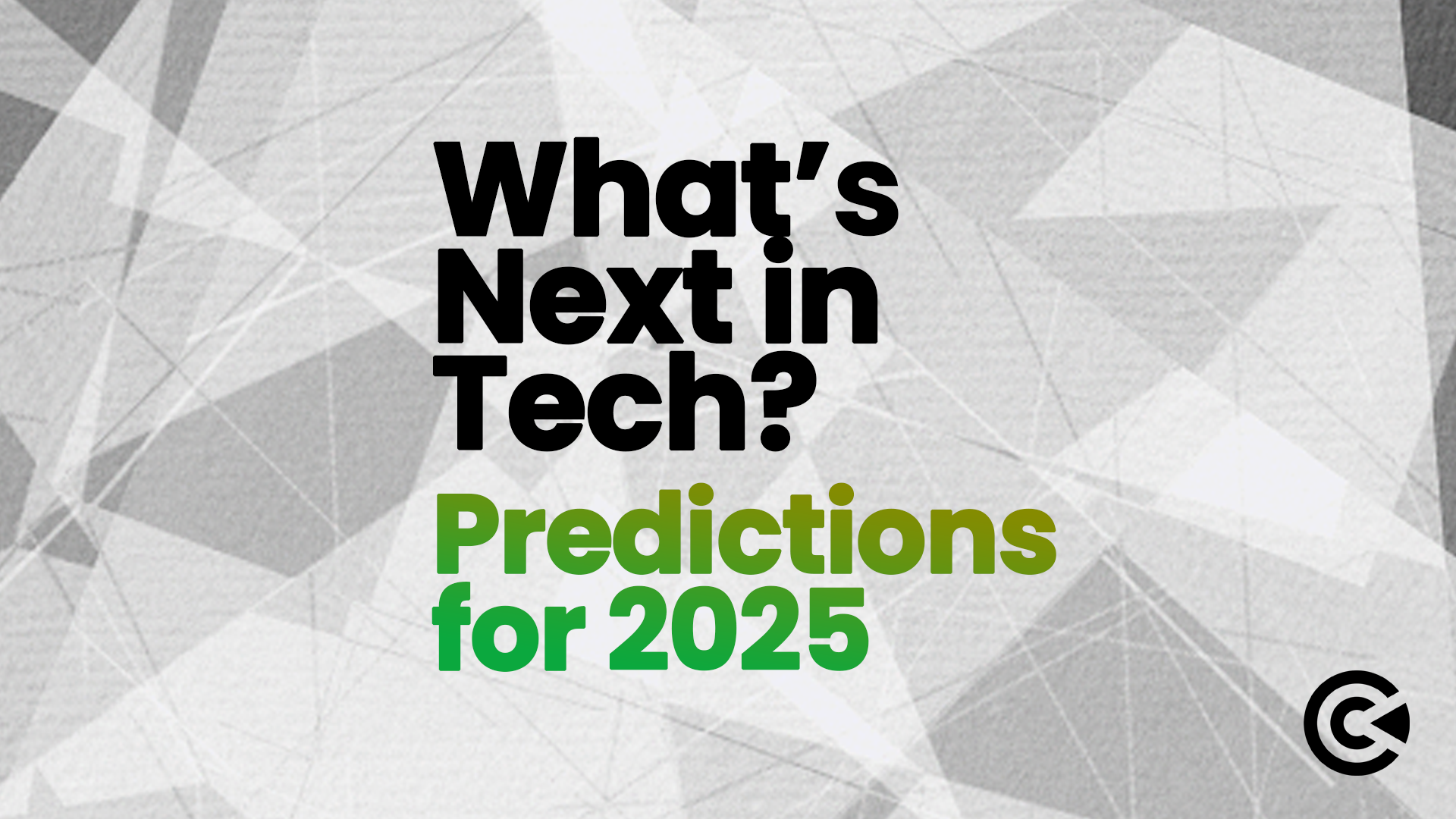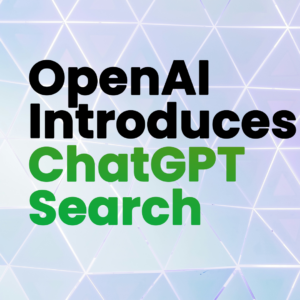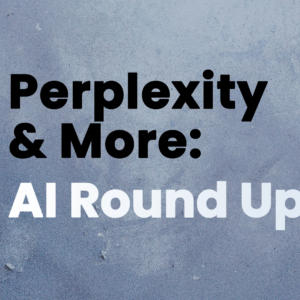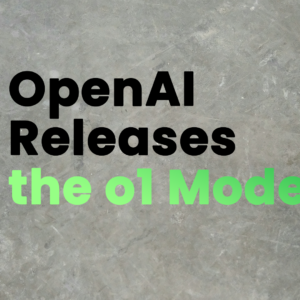What’s Next in Tech? Predictions for 2025

2024 was a whirlwind of advances in AI and tech across all sectors, which makes looking forward to 2025 even that much more exciting. So, what should you expect from the tech world in the coming year? Buckle in and get to explore some of our predictions for 2025.
Zero-click Content
We want what we want when we want it. As a result, we can expect to see an increasing amount of on-demand content in search results on social media platforms, allowing users to engage without the extra step of clicking to access it. This shift will likely enhance our online experience by providing immediate gratification and streamlined access to the content we crave.
Increased Collaboration Between Humans and Cobots.
Cobots, or collaborative robots, are designed to enhance human productivity and safety, particularly in manufacturing and industrial environments. By working alongside humans, these robots assist in various tasks, streamlining operations and reducing the risk of accidents. This increased collaborative approach not only improves the efficiency of processes but also promotes a safer workplace, allowing for a harmonious interaction between technology and human workers.
Expect Social Commerce to Continue.
Influencers have become a significant force in the business world, capitalizing on their reach and impact to monetize heavily. Platforms like Instagram Shops, TikTok Shopping, and Facebook Shops are experiencing a surge in popularity, providing influencers with new avenues to promote products and connect with their audiences. As these shopping features evolve, it’s likely that the role of influencers in driving sales and shaping consumer behavior will only continue to grow.
Living in the Metaverse
The metaverse, along with the broader field of artificial intelligence, is poised for continued expansion and deeper integration into our daily lives. While the initial hype surrounding the metaverse may have subsided, ongoing development of more accessible hardware and compelling use cases suggests a gradual but persistent integration into various aspects of our routines. From virtual workspaces and immersive educational experiences to interactive entertainment and enhanced social connections, the metaverse offers potential extensions of our physical world.
Simultaneously, AI is becoming increasingly pervasive, powering personalized recommendations, automating tasks, and enhancing user experiences across countless applications and devices. This convergence of the metaverse and AI promises to create more seamless and intuitive digital interactions, blurring the lines between the physical and virtual realms and transforming how we work, learn, socialize, and entertain ourselves.
Step aside, Dr. Google, Medical Chatbots are Here
As the use of AI technology continues to expand, we should anticipate seeing more AI chatbots integrated into various sectors, particularly in the field of medical care. These chatbots are expected to play a significant role in the frontlines of triage, helping to streamline processes and enhance patient care by assisting medical professionals in assessing and prioritizing patient needs more efficiently.
The New Era of Medicine: AI and Biotech in Action
The convergence of artificial intelligence and biotechnology is poised to revolutionize the medical field in the coming years. AI algorithms are increasingly being used to analyze vast datasets of patient information, accelerating drug discovery and development by identifying promising drug candidates and predicting their efficacy.
Furthermore, AI is enhancing diagnostic accuracy through advanced image analysis and pattern recognition, enabling earlier and more precise detection of diseases. In biotech, advancements in gene editing technologies like CRISPR, coupled with AI-powered analysis of genomic data, are paving the way towards personalized medicine tailored to an individual’s genetic makeup. This powerful combination promises to transform healthcare by enabling more effective treatments, preventative measures, and, ultimately, improved patient outcomes.
AI is Out of “Easy Data.”
Because large language models have already processed the vast majority of easily accessible public data, the next phase of their development hinges on acquiring new and more specialized datasets. We can expect to see this occur through several avenues. One prominent method may be corporate mergers and acquisitions, where companies strategically combine to consolidate their data holdings, creating more comprehensive training sets for their models.
Simultaneously, there could be a surge in the deployment of various sensors and data collection technologies. These could range from environmental sensors gathering climate data to wearable devices tracking biometric information, and even more sophisticated methods of monitoring online activity. This expansion of data collection aims to capture diverse data types, enabling language models to become more nuanced, contextually aware, and capable of performing a wider range of tasks.
The Continued Rise of Decentralization in Social Media
Bluesky, Threads, and other emerging platforms signal a potential shift towards decentralization in the social media landscape, a movement we only see growing in 2025. Dissatisfaction with centralized platforms, often criticized for their content moderation policies and data handling practices, has fueled interest in decentralized alternatives. Bluesky, with its AT Protocol, aims to give users more control over their data and online experience by allowing for interoperability between different servers. While Threads, backed by Meta, initially launched as a more centralized platform, its potential integration with the ActivityPub protocol (the same technology behind Mastodon) suggests a move towards greater decentralization. This trend reflects a desire for more user autonomy, potentially leading to a more diverse and distributed social media ecosystem.
2025: A World Seamlessly Connected by Tech
The tech predictions for 2025 reveal a future shaped by greater personalization, automation, and interconnectedness. We anticipate a shift towards more immediate and accessible content consumption with zero-click experiences, while collaborative robotics will redefine human-machine interaction in professional settings. Social commerce will continue its ascent, further blurring the lines between online engagement and purchasing. The metaverse, powered by increasingly sophisticated AI, will offer richer and more immersive digital experiences, impacting how we work, learn, and connect. In healthcare, AI-driven chatbots and the synergy of AI and biotech promise more efficient and personalized medical care. The pursuit of advanced AI will drive new data acquisition strategies, and the movement towards decentralized social media platforms will empower users with greater autonomy. In short, 2025 promises a year of significant technological evolution, bringing us closer to a future where technology seamlessly integrates into nearly every facet of our lives.


